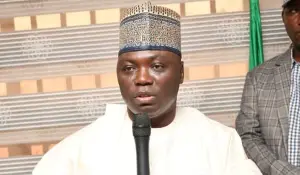The Jigawa State Government has successfully identified and removed approximately 7,000 ghost workers from its payroll following a comprehensive verification exercise, according to the state's Commissioner for Finance, Hannatu Sabo.
During a press briefing in Dutse marking Governor Umar Namadi's two years in office, Mrs. Sabo revealed that these individuals were removed after failing to present themselves for the mandatory verification process.
"The fake employees were removed from the payroll as they failed to report for the verification exercise," the commissioner stated. She emphasized that this action demonstrates "the government's commitment to transparency and accountability."
Part of Broader Reform Strategy
The commissioner explained that the clean-up exercise is part of a larger strategy to reform the civil service and eliminate fraudulent salary claims. This initiative has coincided with new recruitment drives under the state's J-Health, J-Teach, and J-Agro schemes, which aim to strengthen the healthcare, education, and agriculture sectors respectively.
"The exercise also led to the recruitment of new employees under the J-Health, J-Teach, and J-Agro programmes," Mrs. Sabo added, highlighting the administration's commitment to not only cutting waste but also investing in critical sectors.
Competitive Salary Structure
The commissioner proudly noted that Jigawa remains among the few states fully implementing the new salary scale, making it one of the highest-paying states in Nigeria. She also highlighted that civil servants receive their salaries promptly, before the 25th of each month, as directed by Governor Namadi.
Additionally, the state is now receiving higher monthly allocations from the Federal Government, which is expected to enhance revenue generation and accelerate development projects across Jigawa.
Strategic Investments
The commissioner also revealed significant investments made by the state government, including the acquisition of the previously private Khadija University in Majia and the purchase of equity in the Kano Electricity Distribution Company (KEDCO).
"The purchase of Khadija University and the acquisition of shares in KEDCO are expected to boost the state's revenue and improve the quality of education and electricity supply," she explained.
Furthermore, the administration has increased support for microfinance institutions and plans to establish bank branches in local government areas currently lacking access to banking services, particularly in rural communities.
These comprehensive reforms and strategic investments demonstrate the Jigawa State Government's commitment to efficient governance, service delivery, and economic development for its citizens.













